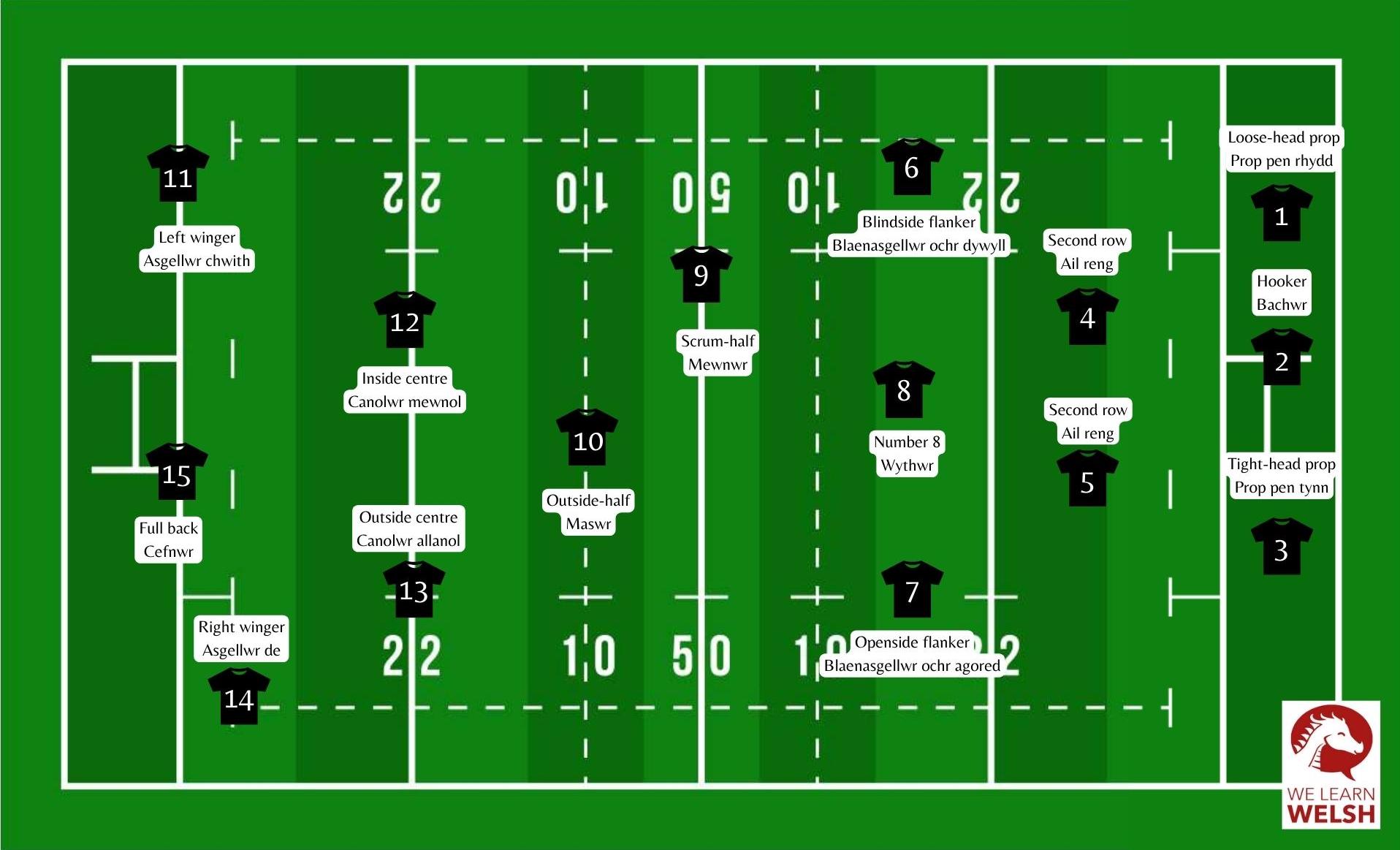Rugby can be a thrilling sport, evoking a range of emotions as you watch your team’s triumphs and setbacks. However, amidst the excitement, moments of confusion can arise when unfamiliar terms leave you puzzled, especially if you aren’t watching it in your native language!
In this article, I’ll shed light on some of the most important Welsh rugby terms, helping both newcomers and seasoned fans enhance their understanding. From technical jargon to essential concepts, this guide will help you navigate the world of Welsh rugby like a pro!
What is “rugby” in Welsh?
As the 2025 edition of the Six Nations approaches, you may be keen on brushing up on your Welsh rugby vocabulary, and what better place to start than with the word itself.
The Welsh word for rugby is, quite simply, rygbi. The only real difference lies in the spelling on the two words, though there is a slight variation in pronunciation. To get a true sense of how a native speaker says the word, take a moment to listen to the audio clip provided below.
rygbi
rugby
Below are some useful Welsh rugby phrases you can use before, during and after a match with your ffrindiau (friends). Take a moment to listen to the pronunciation so you can imitate how a native speaker would say them.
Lle allai wylio’r gêm rygbi rhwng Cymru a Lloegr?
Where can I watch the rugby match between Wales and England?
Beth ydy’r sgôr?
What’s the score?
Da iawn, hogiau! Ymlaen a chi rŵan!
Well done, boys! Let’s keep going now!
If you want to learn all the different ways of saying “Come on, Wales!”, be sure to check out our dedicated article!
The Most Important Welsh Rugby Terms
Here I’ve listed some of the most important Welsh rugby terms you will need to survive while watching a game in Cymraeg. Each term is accompanied by an audio file to help you work on your pronunciation.
cais
try
A cais (plural: ceisiadau) is scored by grounding the ball in the in-goal area, earning five points in union and four points in league matches, followed by a conversion kick for two additional points.
trosiad
conversion
A trosiad (plural: trosiadau) refers to the scoring opportunity that follows a successful try. After grounding the ball in the in-goal area, the team can attempt to kick the ball through the goalposts and above the crossbar, earning two additional points.
tîm
team
A tîm (plural: timau) consists of 15 players, divided into eight forwards and seven backs.
cae rygbi
rugby pitch
The official name of a rugby playing field, which is 100m long by 70m wide. The plural is caeau rygbi.
cosb
penalty
Cosbau (penalties) are given for significant offenses such as dangerous play, being offside, or handling the ball on the ground during a ruck. A penalty kick is a cic gosb while a penalty try is a cais cosb.
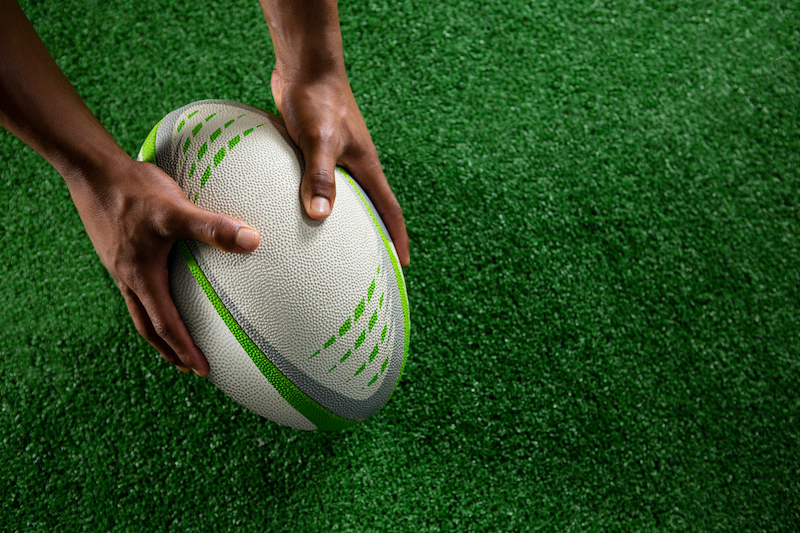
gôl adlam
drop goal
A gôl adlam (plural: goliau adlam), which is worth three points, is achieved when a player kicks the ball from hand through the opponent’s goal, but before doing so, the ball must touch the ground after being dropped.
tacl
tackle
A tacl (plural: taclau) occurs when one or more opposition players, known as tacklers, grasp onto the ball carrier and bring them to the ground, holding them there to stop their progress. Some different kinds of tackles include tap pigwrn (ankle-tap), tacl grog (choke tackle) and tacl uchel (high tackle).
ryc
ruck
A ryc (plural: ryciau) is a phase of play that forms when one or more players from each team, who are on their feet, come together over the ball on the ground.
cic
kick
A cic (plural: ciciau) is pretty self-explanatory. There are different kinds of kicks in rugby including the cic bwt (grubber kick) and cic adlam (drop-kick). A kicker is known as a cicwr and “to kick” is cicio.
ennill / colli
to win / to lose
As in all team sports, the team that scores the greater number of points is the winner of the match.

pêl rygbi
rugby ball
A pêl rygbi (plural: peli rygbi) has an oval shape with four panels, and weighs about 400 grams.
pas
pass
Some different kinds of pasiau (passes) in rugby include pas ymlaen (forward pass), ffugbasio (to make a dummy pass) and pas hir (long pass).
stadiwm
stadium
The Principality Stadium in Cardiff, also known as the Millenium Stadium, is the national stadiwm (plural: stadiymau) of Wales.
mantais
advantage
Mantais (plural: manteision) is a rule that allows the non-offending team to continue play after an infringement occurs. Instead of stopping the game immediately, the referee signals “mantais” and allows the non-offending team to play on for a short period.
dyfarnwr / dyfarnwraig
referee
Dyfarnwyr (referees) oversee rugby matches and ensure players follow the rules of a game.
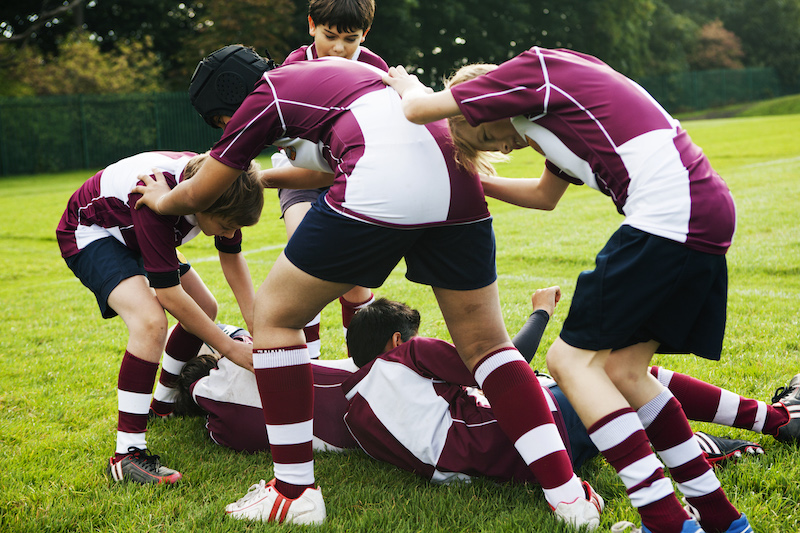
capten
captain
The capten (plural: capteiniaid) is a player, leader, communicator, decision-maker, and important link between team and coach.
gêm
game / match
Each gêm (plural: gemau) lasts 80 minutes. A home game is called a gêm gartref whereas Seren y Gêm is Man of the Match.
Rygbi’r Undeb
Rugby Union
The official name of the sport rygbi / rugby.
sylwebydd
commentator
Sylwebwyr (commentators) describe what’s happening during the match and offer their opinions to listeners and viewers.
hyfforddwr
coach
Hyfforddwyr (coaches) develop the actions, behaviours, preparation and fitness of their players, while improving their awareness, creativity, resilience, and decision making skills. A prif hyfforddwr is a head coach.
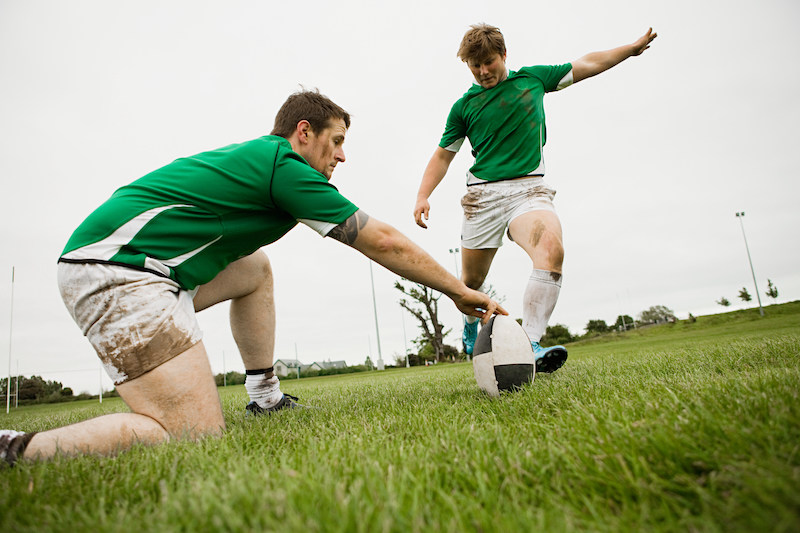
camsefyll
offside
Offside laws state that a player may not derive any advantage from being in front of the ball.
troi’r bêl
turnover
When a team concedes possession of the ball, they are said to have “troi’r bêl” (turned the ball over) to the other team.
meddiant
possession
The possession of a ball is known as meddiant (plural: meddiannau) in Welsh.
sgrym
scrum
A sgrym (plural: sgrymiau) occurs when eight forwards from each team bind together and push against each other.
wedi ei anafu
injured
Serious injuries (anafiadau) often occur in the game of rugby!
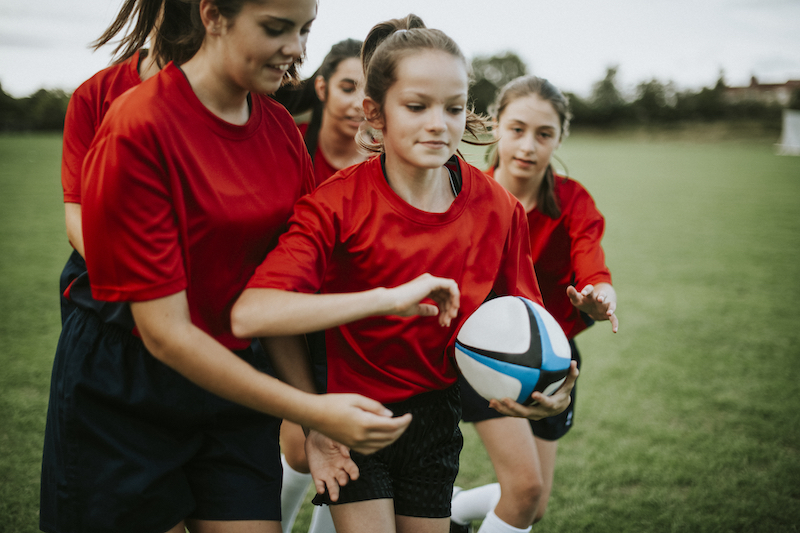
ardal y gwrthdaro
breakdown
This is a colloquial term for the short period of open play immediately after a tackle and before and during the ensuing ruck.
marc
mark
In rugby union, a player can “mark” the ball, allowing them to catch it without being tackled by opponents. Then, the player who marks the ball takes a free-kick from that spot.
cerdyn coch / melyn
yellow / red card
A referee shows a cerdyn melyn (plural: cardiau melyn) to a player being cautioned. A cerdyn coch (plural: cardiau coch) is shown to a player who is being sent off the pitch.
chwaraewr / chwaraewraig
player
A rugby team consists of fifteen chwaraewyr (players) in rugby union: eight players in the tight scrum and seven players scattered all over the field called backs.
sgarmes
maul
A sgarmes (plural: sgarmesoedd) is formed in rugby when the ball carrier is held up by both an opposing player and a player from his own team, preventing them from being tackled to the ground.
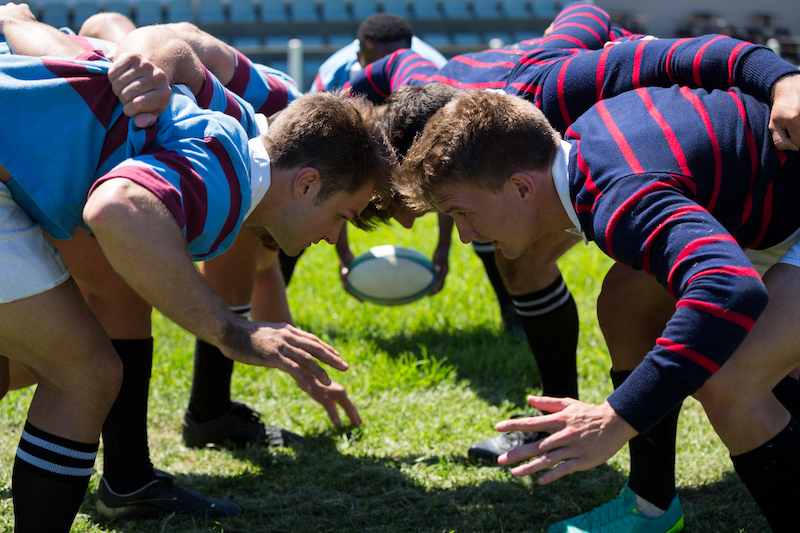
Rugby Positions in Welsh
prop pen rhydd = loose-head prop
bachwr = hooker
prop pen tynn = tight-head prop
ail reng = second row
blaenasgellwr ochr dywyll = blindside flanker
wythwr = number 8
blaenasgellwr ochr agored = openside flanker
mewnwr = scrum-half
maswr = outside-half
asgellwr chwith = left winger
asgellwr de = right winger
canolwr mewnol = inside centre
canolwr allanol = outside centre
cefnwr = full-back
Rugby Tournaments in Welsh
Here are the two most important rugby tournaments in which Wales takes part.
Cwpan Rygbi’r Byd (Rugby World Cup): Held every four years, the Cwpan Rygbi’r Byd is the pinnacle of international rugby competition, featuring teams from around the world competing for the prestigious Webb Ellis Cup.
Pencampwriaeth y Chwe Gwlad (The Six Nations Championship): An annual tournament contested by six European nations – England, France, Ireland, Italy, Scotland, and Wales. It is one of the oldest and most prestigious rugby competitions.
Sources:
Y Termiadur Addysg
Six Nations Rugby
Bleacher Report – Rugby Dictionary
Parallel Cymru
Education First


